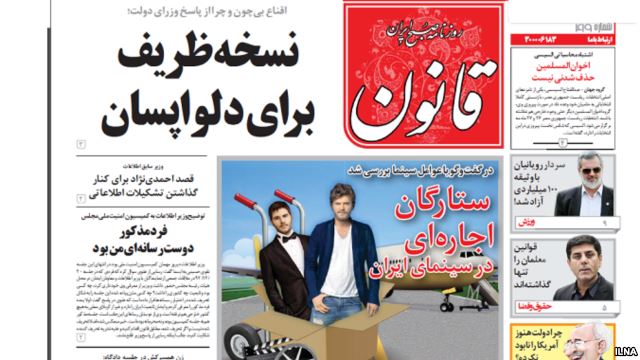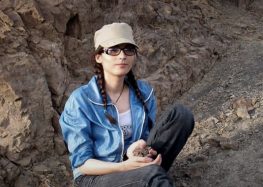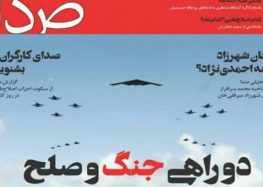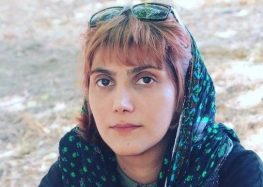Iran’s Judiciary Sues Editor for Exposing Corruption and Poor Treatment of Inmates at Major Penitentiary

Tehran’s chief prosecutor is suing the editor-in-chief of a popular reformist newspaper for publishing a feature piece about a major prison facility in the south of Tehran.
The Ghanoon newspaper article exposes a money-making operation run through the Great Tehran Penitentiary as well as the prison’s poor living conditions and ill treatment of detainees.
Tehran’s hardline Chief Prosecutor Abbas Jafari Dolatabadi said on June 14, 2016 that Iran’s Prisons Organization had sued Ghanoon’s editor-in-chief, Mahnaz Mazaheri, for the “false allegations” contained in the article “24 Damn Hours,” published on June 11, 2016.
Dolatabadi added that “there are lots of negative headlines and articles these days” in the press that are causing “public dismay and anxiety.”
Mazaheri has not yet commented on the case.
The article recounts the first-hand observations of a prisoner who was held for one day in the Great Tehran Penitentiary. Believed to be one of the largest judicial holding facilities in the Middle East, the prison was built in 2012 in the Hassanabad region south of Tehran near the city of Qom.
The prosecution of a newspaper editor for the content of a single article, and the fact that the article limited its criticism to a specific penitentiary while making no reference to the interrogation sessions or unsanitary conditions prisoners endure at the Evin or Rajaee Shahr Prisons, demonstrates Iranian officials’ increasing intolerance of any criticism.
Stolen BelongingsAccording to the article, the Great Tehran Penitentiary admits between 200-300 new detainees each day, all of whom are forced to hand in their pocket cash at a local branch of Pasargad Bank.
The owners of the cash are denied access to their money for three days, generating “profits for the bank.” Once the owners are released, the debit card issued by the bank containing their money is cancelled with a non-refundable and non-transferrable balance.
Detainees are also regularly released after 8:30 in the evening, when the prison’s bank and storage facility are closed, which prevents them from retrieving their personal belongings, including watches, jewelry and cash. Prohibited from making outside contact before their release, detainees find themselves penniless and with no one to pick them up after they are freed.
Inmates are also only granted access to “very poor quality, undrinkable water” for two hours a day, according to the article.
The Ghanoon newspaper was banned for three months in 2014 after it was sued by the Tehran chief prosecutor for its reporting. The article in question at the time claimed that the chairman of the Persepolis soccer club, former senior Revolutionary Guard Commander Mohammad Rouyanian, had been booked at the Great Tehran Penitentiary before being released on bail.






